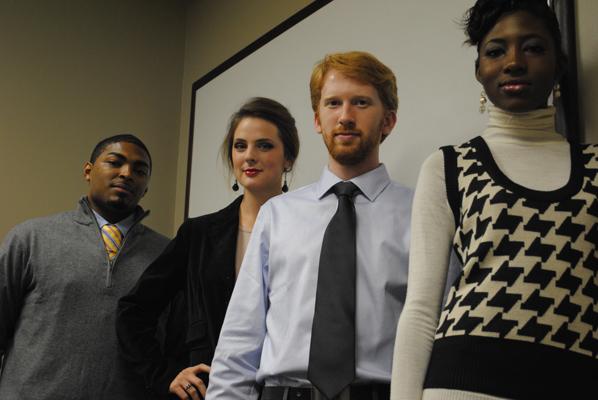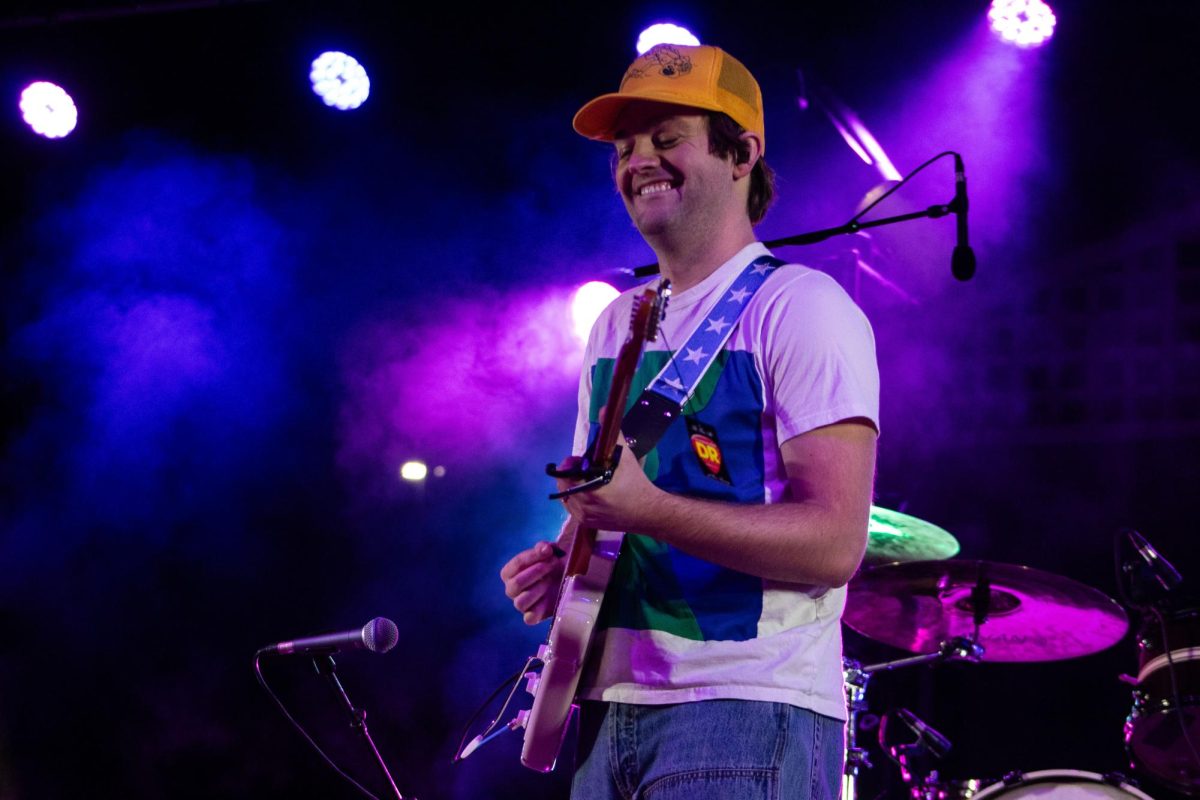Even though shorts, sandals and an oversized shirt is seen as appropriate dress for class, it definitely is not the outfit to wear to an interview. College students are in complete casual mode for four years before they start working in the professional world, where they need to have an entirely different wardrobe. If students revise their resumes numerous times to make sure it is absolutely perfect, why should that much attention not be paid to their appearance. Deny it, but employers will judge based on appearance and not just skills.
Dean of students Thomas Bourgeois is among the most professionally dressed faculty members at MSU. He wears a suit most days of the week and is always dressed nicely even, on casual days. He offers his advice for what he looks for in an interviewee.
“I am old-fashioned in that I think a suit and tie [for men] or a respectful pant suit for women is appropriate dress for a job interview. Be on time, which means fifteen minutes early,” Burgeois said.
Most employers have the same “old-fashioned” mind-set as Bourgeois. Even though a style is trendy, it does not mean that it should be worn in a professional environment. Whether interviewing for a position at an accounting firm or a design job with a major fashion label, classic and conservative is the safest way to go. Buying timeless pieces in neutral colors allows one to mix and match without spending a fortune.
Trey Templeton, manager and buyer for George Sherman Clothiers in Starkville, has years of experience working with college men in helping them select the right wardrobe in preparation for their life after school. Templeton gives his opinion on what every man needs in his closet upon graduation.
“Every college graduate needs to have a good quality dark suit. Our suit of choice would be a solid black one. Black goes with any shirt and tie combination and is appropriate for any occasion (weddings, funerals, interviews, etc.) Also, a white shirt with a non-button-down collar is a must have. Non-button-down collars are much dressier than button down collars. Complete a dark suit with a black, lace-up dress shoe.”
Appearance plays a larger role in a job interview than some might think. The resumé got you the interview, but how a person presents themself in the interview determines getting hired.
Kathleen Thomas, associate professor of economics, emphasized how important it is to be appropriately dressed in front of a future employer and what your dress says about you.
“The interview is your opportunity to give a prospective employer information that cannot be conveyed by a resumé. Can you communicate well? Can you think on your feet? Would you make a good co-worker? Showing up to an interview in an outfit that is too casual, too sexy, not clean, or doesn’t fit shows poor judgment,” she said.
“A prospective employer might assume that if you can’t make the appropriate judgments about what to wear in a professional setting, you might lack good judgment in other areas as well. Don’t give anyone an excuse not to hire you.”
Knowing what to wear is just as important as knowing what not to wear. Kathleen also suggests not wearing anything distracting such as hoop earrings or blue nail polish. She says, the employer should be focused on the interview and not wondering why an person’s shoes do not match his suit or thinking their skirt is too short.
Getting dressed next time for an interview, a job, a presentation or an event, consider Trey Templeton’s parting advice: “Always dress appropriate for the occasion. There is nothing wrong with looking nice and people notice you when you look sharp.”
For more information on professional dress, Beta Gamma Sigma is hosting an event dedicated to this subject Oct. 5 at 7 p.m. in the McCool atrium. There will be a fashion show and informational booths including George Sherman, Saks Fifth Avenue and the Career Services Center.
Categories:
Looking the Part
SYDNEY SAWYER
•
September 23, 2010

0
Donate to The Reflector
Your donation will support the student journalists of Mississippi State University. Your contribution will allow us to purchase equipment and cover our annual website hosting costs.
More to Discover







